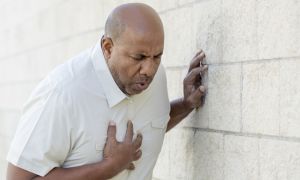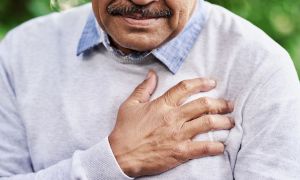If you feel pressure, discomfort or pain in the center of your chest or that spreads to your arm, neck or jaw, or a crushing or squeezing sensation with shortness of breath, tiredness or upset stomach, you could be experiencing a heart attack. Call 9-1-1 immediately. After you call 9-1-1, the operator may recommend that you chew one adult-strength (325 mg) aspirin after he or she makes sure you don't have an allergy to aspirin or a condition that may make taking it too risky. If the operator doesn’t talk to you about chewing an aspirin, the emergency medical technicians or physicians at the hospital will give you one if it's right for you.
If you experience sudden chest pain, shortness of breath, nausea, fatigue, pain in your arm or jaw, or sudden and concerning discomfort, get to an emergency room as quickly as possible.
Do not wait to see if your symptoms improve. Interventional cardiologists—cardiologists who specialize in using thin, flexible tubes to perform cardiovascular procedures—have made huge strides in recent decades in saving the lives of heart attack victims, but a patient’s odds of survival are still affected by how quickly treatment is received.
Emergency room doctors can evaluate you to see if you are having a heart attack. If they find you are not having a heart attack, there is no reason for embarrassment. Heart disease is the leading killer of adults in the United States and in many other parts of the world—and any concern about whether you are having one is a worthy one.
If you think you are having a heart attack, the first thing you must do is dial 911. Do not drive yourself to a hospital. Don’t have someone else drive you. Heart attacks can suddenly cause irregular heartbeats that may cause your heart to stop. EMS is prepared to treat these arrhythmias. All it takes is an electrocardiogram (ECG or EKG)—a simple painless test—to find out if you’re having a heart attack. You can get one in the ambulance on your way to the hospital, thereby beginning heart attack diagnosis and treatment before you even reach the hospital. It’s a very effective way to reduce the time it takes to get you the treatment you need. While you wait for the ambulance to arrive, chew one uncoated aspirin to reduce your body’s ability to form blood clots.
Continue Learning about Heart Attack
Important: This content reflects information from various individuals and organizations and may offer alternative or opposing points of view. It should not be used for medical advice, diagnosis or treatment. As always, you should consult with your healthcare provider about your specific health needs.




